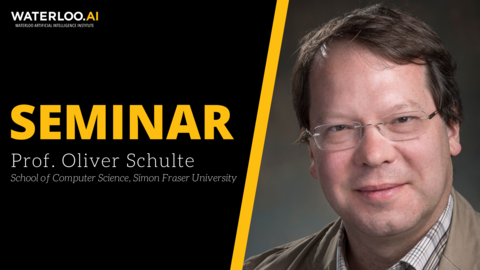
Title: Valuing Hockey Actions and Ranking Players With Reinforcement Learning
Abstract: Reinforcement learning is the branch of machine learning that studies learning to act. This talk develops the idea that reinforcement learning can solve the problems of sports analytics. I focus on ranking player performance. A common approach is to assign a value to each player action and rank a player by their aggregate action value. A recent AI-based approach is to measure the value of a player’s action by how much it increases their team’s chance of success, that is, their team’s chance of scoring the next goal. This requires a model that outputs a success probability estimate, given a match context and an action. This talk describes reinforcement learning techniques for building success probability models from data. The resulting action values and player rankings are illustrated with data from the National Hockey League.
Speaker Bio: Oliver Schulte is a Professor in the School of Computing Science at Simon Fraser University, Vancouver, Canada. He received his Ph.D. from Carnegie Mellon University in 1997. His current research focuses on machine learning for structured data, such as sports events, networks, and relational databases. He has published papers in leading AI and machine learning venues on a variety of topics, including sports analytics, learning Bayesian networks, game theory, and scientific discovery. While he has won some nice awards, his biggest claim to fame may be a draw against chess world champion Gary Kasparov.
Date and Time:
Thursday June 2nd, 2022
1:00 PM - 2:30 PM
In-person and Virtual:
- In-person location: DC 1304
- Zoom Link: https://uwaterloo.zoom.us/j/91756150722?pwd=NzZxb0NTNWpLSjB6OEJjdVBWUjc5dz09
Recording: https://youtu.be/FsHrl48vbuo